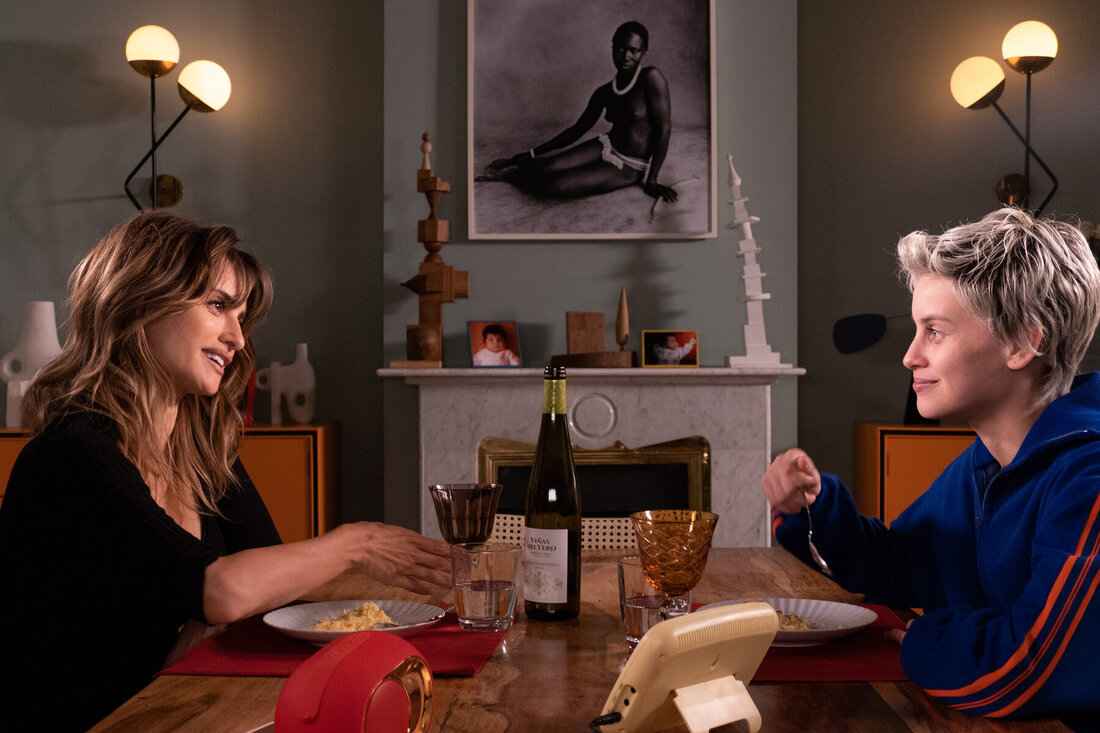Hirokazu Koreeda tackled similar material in his excellent Like Father, Like Son, and both he and Almodovar are interested in where the circle of family can be drawn. Koreeda centered a stoic man asking that question, a character type that seems as far away from Almodovar as possible. In Parallel Mothers, there’s never a question of Janis’ big heart, thanks to Cruz’s open performance. There are two DNA test results in Parallel Mothers that play out as Janis reading an e-mail. Lit by her computer monitor’s glow, Almodovar watches his lead in close-up as she processes the information and comes to a conclusion about what happens next, all without dialogue. Cruz is so transparent and empathetic that there’s no doubt of her connection to any of the people within the central dilemma. Koreeda takes his whole film to decide if his lead is going to recover from a case of swapped babies. Almodovar’s version acknowledges quickly that Janis will, and then spends the rest of the film determining what the resultant family unit will look like. Both takes work, reflecting the difference between Japanese and Spanish emotional lives and family culture.
Koreeda pulls ahead, however, because his film is so much more focused. Throughout the film, Janis is working on an exhumation of a mass grave from the Spanish Civil War, and her initial connection with Arturo is rooted in their shared interest of digging up the past. This subplot is revisited throughout the film. A different director would’ve made a film just about the mass grave. It’s easy to imagine something like Local Hero or Ida or any number of other films where the locals stake out different positions and national themes and myths are explored, culminating in purging catharsis as the ugly past can finally be uncovered. This is just as compelling as whose baby is whose, and despite my greater interest in the mass grave plot, they sit comfortably next to each other. Janis is a driving force in the exhumation, but in her personal life, she avoids conflict as long as she can. That’s nice and tidy, but once Janis and Ana become roommates, Almodovar cannot resist making them lovers. The heightened drama of the film works as long as the characters are reacting credibly, and Parallel Mothers breaks once the controlled Janis gives in to Ana’s more reckless infatuation. The age difference alone makes their liaison impractical, it disrupts what had been a beautiful intergenerational friendship, and then confirms how creatively bankrupt the choice is when Ana childishly starts to get jealous.
Regardless of its late collapse, Parallel Mothers is too good to cast aside. It resonates long after the end credits, and it does so on multiple scales and levels. The what-would-you-do response to melodrama lingers, as does a society grappling with how to think of its past. It’s gratifying for an American to see other countries flailing with that issue as badly as this country does. As I get more familiar with Almodovar, it’s becoming clear that he’s too idiosyncratic and specific to ever make a bad movie, but the wild tonal swings are unpredictable in how they happen and if they connect. One day, I’ll land on one of his films where every choice works. B

 RSS Feed
RSS Feed